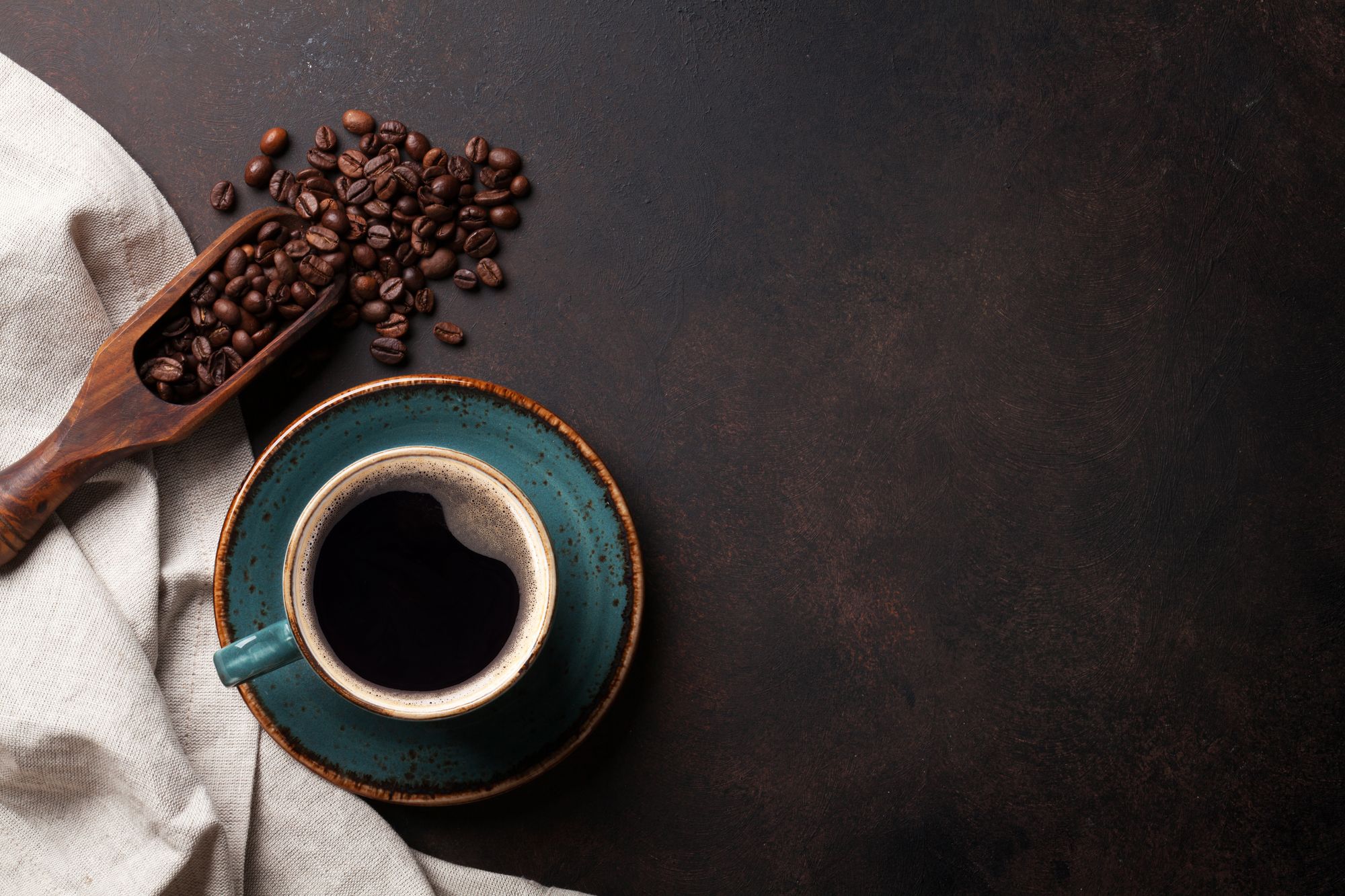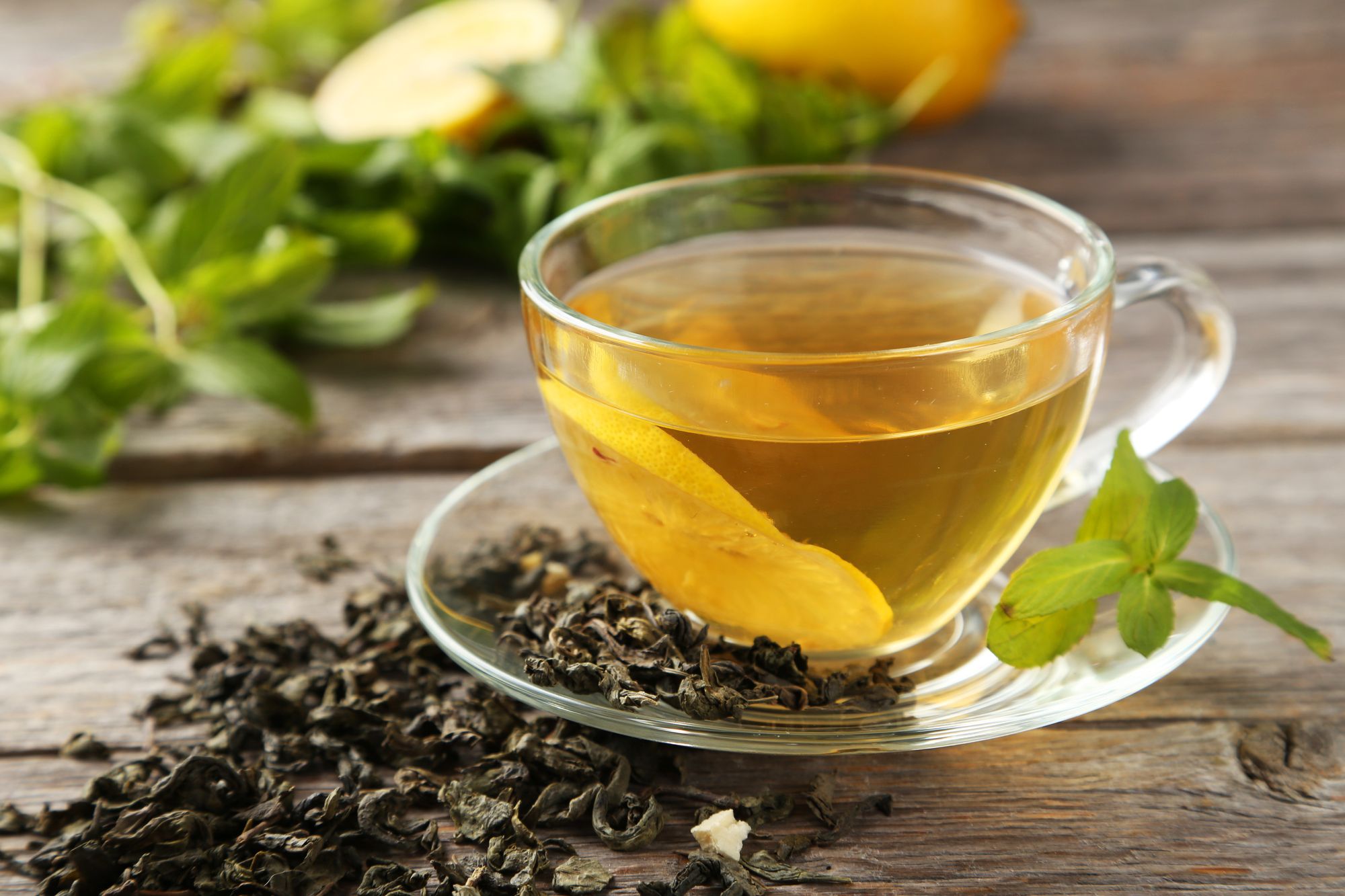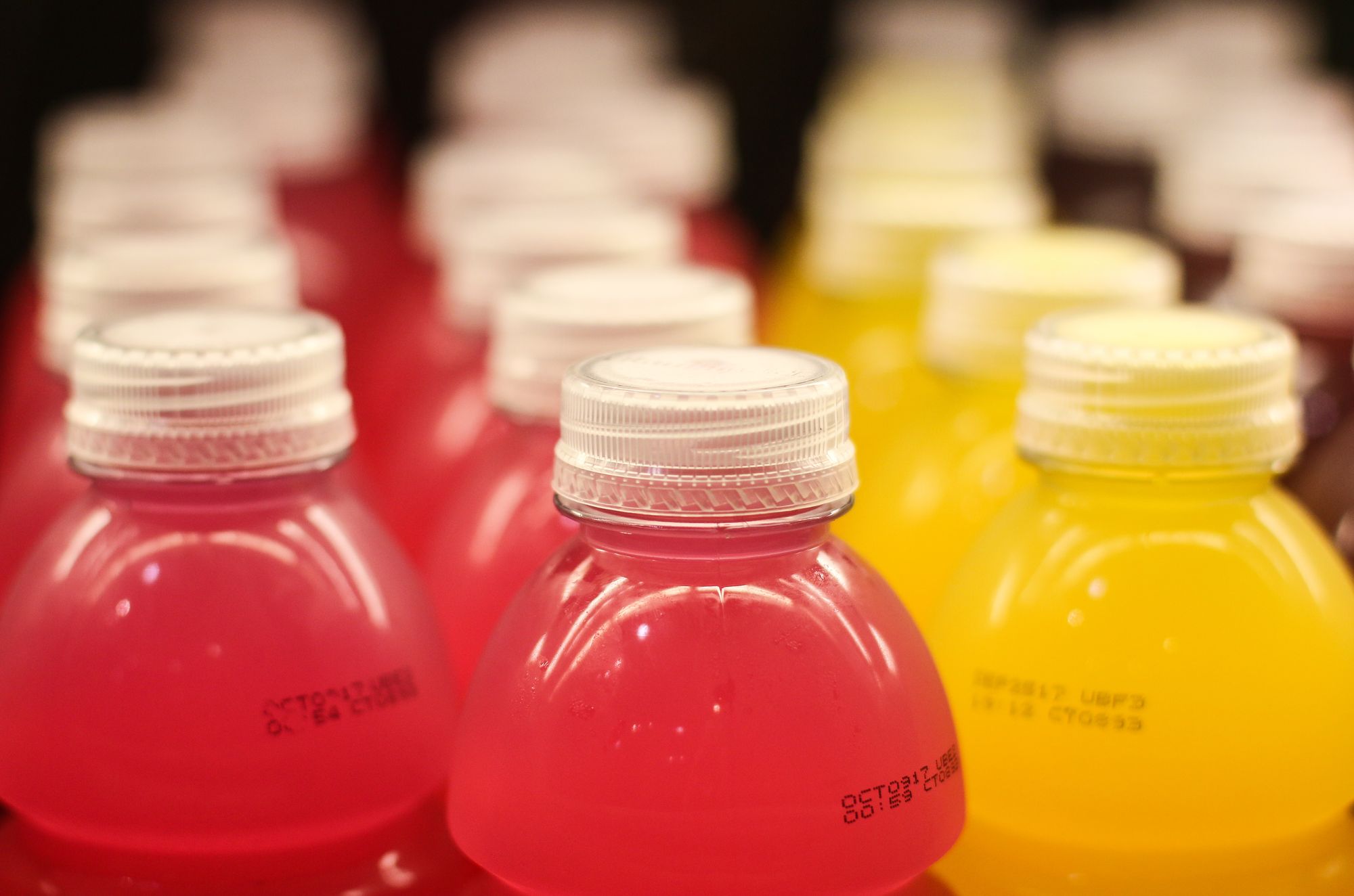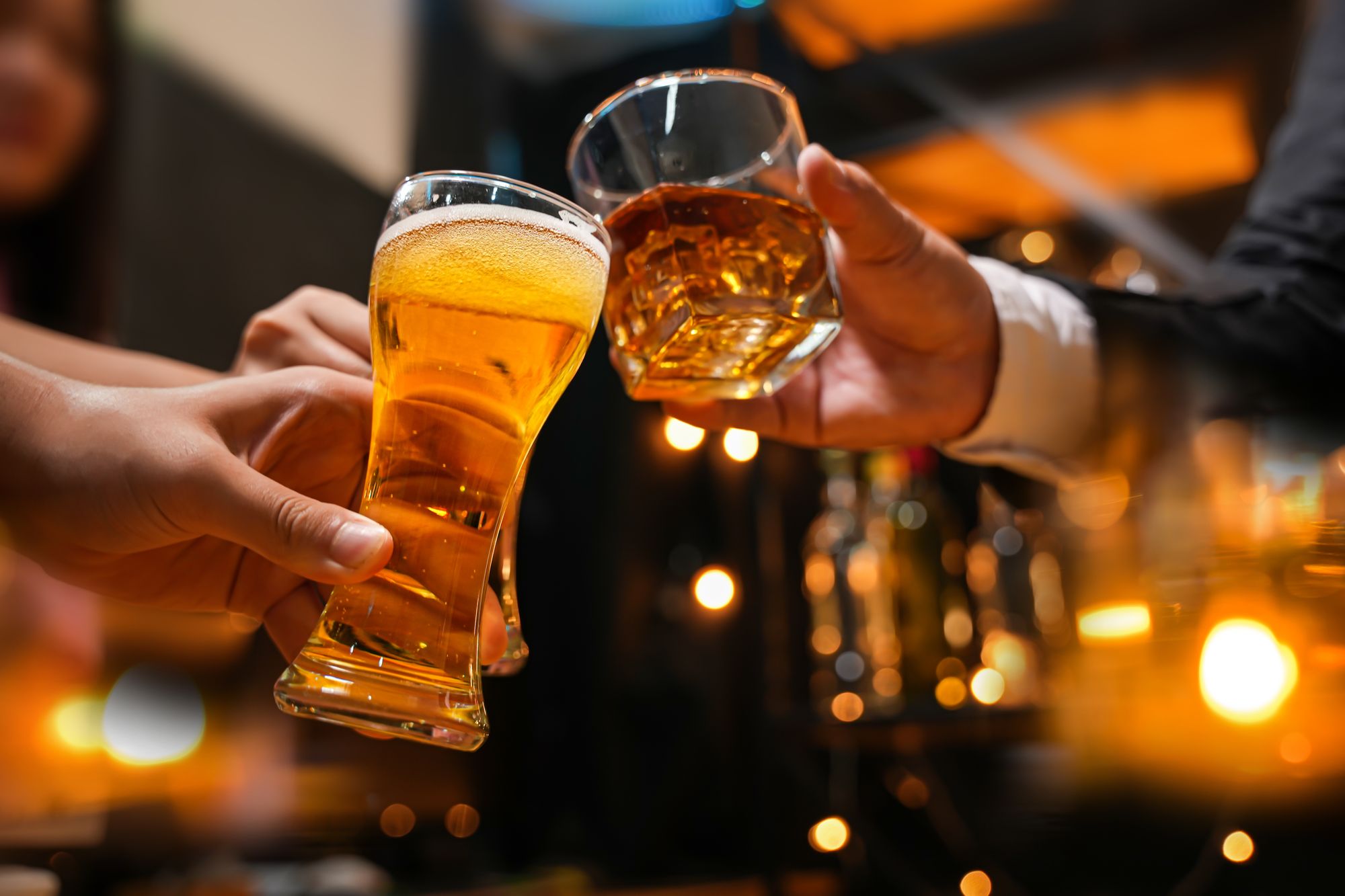As we age, it's not uncommon to find ourselves carrying extra weight around our midsection. While it's natural for our bodies to change with age, carrying excess belly fat can increase our risk for chronic diseases such as type 2 diabetes, heart disease, and certain cancers. However, making simple changes to our drinking habits can help accelerate the loss of belly fat, according to registered dietitians.
Before we dive into these habits, it's important to understand why we tend to put on abdominal fat as we age. As we get older, our fat-burning metabolism slows down, we begin to lose muscle mass, and our hormones change. In women, a decrease in estrogen after menopause can cause fat to be deposited in the abdomen. Additionally, people tend to continue the same patterns of eating and drinking over time, which means consuming the same number of calories as in their younger years, if not more, while their resting metabolism burns fewer and fewer calories.
In a 2010 study published in the International Journal of Body Composition Research, researchers found that all of these factors contribute to an increase in the most dangerous type of fat: visceral fat. This deep belly fat surrounds our organs and increases over 200% in men and 400% in women between their 30s and 70s.
However, the study also showed that exercise can slow the potential increase in visceral fat that comes with aging. By increasing our calorie burn through exercise, we can help combat the accumulation of abdominal fat.
Now, let's talk about how changing our drinking habits can also help. One of the easiest ways to reduce our calorie intake is to be mindful of what we're drinking. Beverages such as soda, sweetened coffee drinks, and alcohol are often high in calories and can contribute to the accumulation of belly fat.
Registered dietitians suggest reducing the consumption of these calorie-dense beverages and replacing them with healthier options such as water, unsweetened tea, or sparkling water with a squeeze of lemon or lime. Additionally, drinking a glass of water before a meal can help reduce our appetite and prevent overeating.
Another important habit to consider is moderating alcohol consumption. Drinking too much alcohol can contribute to the accumulation of belly fat, as well as other health issues such as liver disease and high blood pressure. Registered dietitians recommend sticking to the recommended guidelines of no more than one drink per day for women and no more than two drinks per day for men.
In conclusion, while aging may come with some inevitable changes to our bodies, we do have control over our drinking habits and how they impact our weight and health. By making simple changes to what we drink and how much alcohol we consume, we can accelerate the loss of belly fat and reduce our risk of chronic diseases.
1) Make Water Your Morning Ritual and Keep a Jug on Hand

Drinking more water may be one of the easiest habits to adopt for abdominal fat loss. According to registered dietitian Blanca Garcia, the calories in beverages can quickly add up, including "luxurious coffee drinks, sodas, juices, homemade drinks, shakes, and protein shakes."
To avoid consuming these calorie-rich drinks, Garcia suggests starting your day with a tall glass of water and keeping a bottle or jug of water with you throughout the day. By constantly drinking water, you can reduce your desire to reach for other beverages.
Additionally, drinking a glass of water before each meal may help you consume less food, according to a study in the International Journal of Obesity. The study found that replacing one serving of sugar-sweetened beverages with a cup of water per day led to an average weight loss of one pound every four years.
2) Drink Your Coffee Black

Opting for black coffee can be a smart choice if you're looking to shed abdominal fat. This is because coffee contains caffeine, which can potentially increase your metabolism and decrease hunger by reducing the levels of hunger hormones. Several studies support this claim; one such study published in the Annals of Nutrition & Metabolism found that drinking coffee increased resting metabolism, and the effects lasted for up to three hours after consumption. Another study published in the Food Research International journal suggested that coffee could improve satiety and lead to less food intake.
Aside from the potential metabolic benefits, drinking black coffee can also help cut down on calories. A plain cup of coffee contains only two calories, whereas some flavored specialty coffee drinks available at cafes can contain over 200 calories. Adding high-calorie and high-fat sweeteners and creamers to coffee can increase the likelihood of weight gain, warns Trista Best, MPH, RD, LD, a registered dietitian at Balance One Supplements.
3) Embrace the Benefits of Green Tea

Green tea may not be everyone's first choice, but it has numerous benefits for abdominal fat loss. The phytochemicals, catechins, and caffeine in green tea are believed to increase fat burning. Registered dietitian Rachel Dyckman, RDN, owner of Rachel Dyckman Nutrition LLC, suggests consuming unsweetened green tea regularly.
Studies have shown that catechins in green tea may help target visceral fat loss. According to one study published in the Journal of Functional Food, high consumption of green tea, four or more cups a week, is linked to greater abdominal fat loss in women, as noted in another study in the International Journal of Environmental Research and Public Health.
4) Learn to Limit Artificially Sweetened Beverages

If you are used to drinking diet sodas with artificial sweeteners, consider transitioning to unsweetened drinks as a healthier habit.
According to nutritionist Lisa Richards, author of The Candida Diet, artificial sweeteners like sucrose can cause gastrointestinal problems such as bloating and reduce healthy gut bacteria, leading to weight gain and inflammation.
Furthermore, studies have shown that artificial sweeteners may lead to overeating. A study published in Nutrition, Obesity, and Exercise found that consuming a super sweet drink like a diet soda with no calories may signal the body to expect sugar and calories, leading to cravings and overconsumption. Female participants in the study consumed more calories during a subsequent meal after drinking the artificial sweetener.
If you are trying to reduce abdominal fat, limiting your consumption of diet drinks may be a beneficial step to take.
5) Significantly Limit Those Happy Hours

Alcohol can contribute to abdominal fat, making it a good idea to limit drinking. Happy hours and parties can be tempting times to overindulge, but even a moderate amount of alcohol can add up quickly in terms of calories. One study suggests that heavy drinking is linked to a larger waist circumference.
As a dietitian who focuses on polycystic ovary syndrome (PCOS), Bess Berger, RDN, has seen many women struggle to lose weight or manage insulin resistance until they have cut back on drinking alcohol. In addition, Berger points out that alcohol slows down metabolism, making it harder to burn calories and lose belly fat.
"Calories from alcohol add up without you realizing it," says Berger. "And if you enjoy mixed drinks, remember that the calories and sugars in the mixers can add up even more quickly."
If you're looking to reduce abdominal fat, cutting back on alcohol consumption or eliminating it altogether may be a good starting point.

